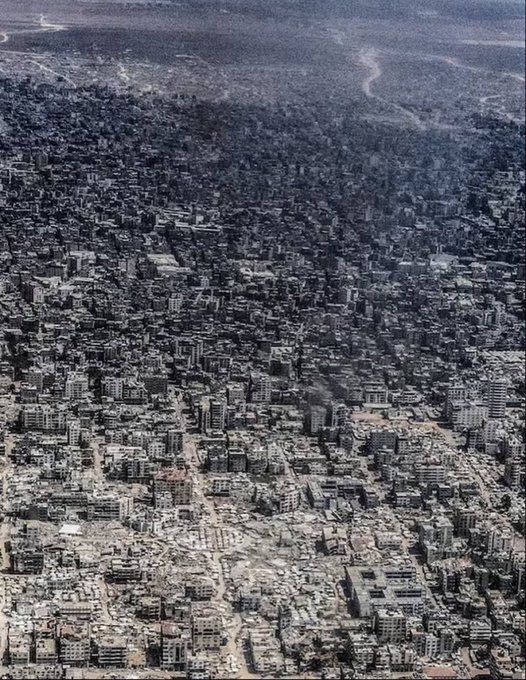India: Protect Honored Kashmiri Rights Lawyer From Attacks
Authorities Should Act Against Those Responsible
(New York, July 1, 2008) The Jammu and Kashmir state government should protect Parvez Imroz, an award-winning human rights lawyer who survived an armed attack on June 30 in Srinagar by alleged security forces members, Human Rights Watch said today. The state government and Human Rights Commission should launch an immediate and thorough investigation into the attack and take criminal action against those responsible.
“The Kashmir government should investigate whether the attack on Imroz was related to his work,” said Meenakshi Ganguly, senior South Asia researcher at Human Rights Watch. “All members of the security forces found responsible, no matter how far up the chain of command, should be prosecuted.”
According to Imroz, on the night of June 30, nine or 10 men wearing uniforms of the state police and the paramilitary Central Reserve Police Force appeared at his Srinagar home and demanded that he come outside. Imroz had recently been investigating scores of unmarked graves in Kashmir to determine if those buried were “disappeared” or part of “fake encounter killings.”
Apprehensive because of previous assassination attempts, Imroz and his wife refused to open the door and called for the help of his brother, Sheik Mustaq Ahmad, who lives next door. Ahmad came out with a flashlight and asked the group of men to identify themselves, but they refused and ordered him to switch off the light. When Imroz’s nephew ran out toward Imroz’s house, one of the men opened fire, but missed. Another man then tossed a grenade at Imroz’s house, which exploded but caused no injuries. When neighbors began to gather, the men left after using tear gas and firing blank shots to disperse the crowd. They also beat up a male neighbor.
Imroz, president of the Jammu and Kashmir Coalition of Civil Society and a founder of the Association of Parents of Disappeared Persons, was awarded the Ludovic-Trarieux International Human Rights Prize in 2006. For many years, he has been documenting abuses and filing court cases to address the widespread problem of enforced disappearances and extrajudicial killings in Kashmir. His work investigating unmarked graves is done as a convener of an unofficial tribunal created by human rights activists. Indian intelligence officials have repeatedly questioned tribunal members.
Since the beginning of the insurgency in Kashmir in 1989, thousands of Kashmiris have gone missing. Imroz and others, including Human Rights Watch, have established that many have been victims of enforced disappearance, which occurs when authorities take individuals into custody and then deny all responsibility or knowledge of their fate or whereabouts. In some recent cases, government investigations have found that security forces have picked up and killed civilians, and later constructed a fake armed encounter with militants in their official report to the police. Senior members of the security forces have admitted that unidentified militants executed by the security forces are buried by villagers in unmarked graves.
Human Rights Watch has recommended an independent and time-bound commission to investigate allegations of “disappearances” and extrajudicial killings. Such a commission should have the capacity to use forensic tests to identify the bodies and security forces should be ordered to cooperate with the commission’s inquiries. Human Rights Watch has also long criticized serious abuses by Kashmiri militants.
“There are these graves containing unidentified people and there are families that are still waiting for news of relatives that ‘disappeared,'” said Ganguly. “It seems that any government committed to respecting human rights would launch a credible investigation to see if any of those missing are in the graves.”
The attack on Imroz comes in the wake of a week of the largest protests in Jammu and Kashmir state in many years. Tens of thousands of Kashmiris came onto the streets after a decision by the state cabinet to give land to a trust to build temporary shelters for Hindu pilgrims for an annual pilgrimage to a cave in the Kashmir valley. While officials stated that this was only a temporary arrangement to build toilets and other facilities, Muslims in the valley protested that it was a ploy to settle Indian Hindus in the area. At the same time, in the majority Hindu Jammu area, protesters demanded that the decision not be revoked.
With state elections due soon, various political entities used the protests to advance their causes. Separatist groups led pro-secession marches. As the protesters enforced a strike, schools, banks, offices, and shops remained shut and daily life came to a halt. Large numbers gathered on the streets, setting fires and destroying government property, evoking memories of similar anti-India protests in 1989 and 1990. Five people were killed and hundreds of protesters and police were injured in the violence.
“People angry at the handling of the land case and other grievances should protest peacefully,” said Ganguly. “And while the security forces have exercised greater restraint than in the past in dealing with these civil disturbances, their responsibility for the deaths of the protesters needs to be independently investigated.”
More than 50,000 people have been killed in an armed conflict that erupted in Jammu and Kashmir state in 1989. In a September 2006 report, “Everyone Lives in Fear,” (http://hrw.org/reports/2006/india0906/ ) Human Rights Watch documented the plight of Kashmiris caught between abusive Indian government forces and armed militant groups.
The report found that the impunity provided to state forces and the failure to hold them accountable for human rights violations have created an atmosphere where violators believe they can get away with serious crimes. Despite repeated claims by the state government and the central government in New Delhi of a “zero tolerance” policy for human rights abuses, there have been no serious attempts to transparently investigate, prosecute, and punish individuals responsible for abuses.
“Impunity has led members of the security forces to believe that they can get away with attacks such as the attempt on Parvez Imroz,” said Ganguly. “By punishing the individuals who tried to attack him, the government can send a strong message about its commitment to protect human rights defenders.”




